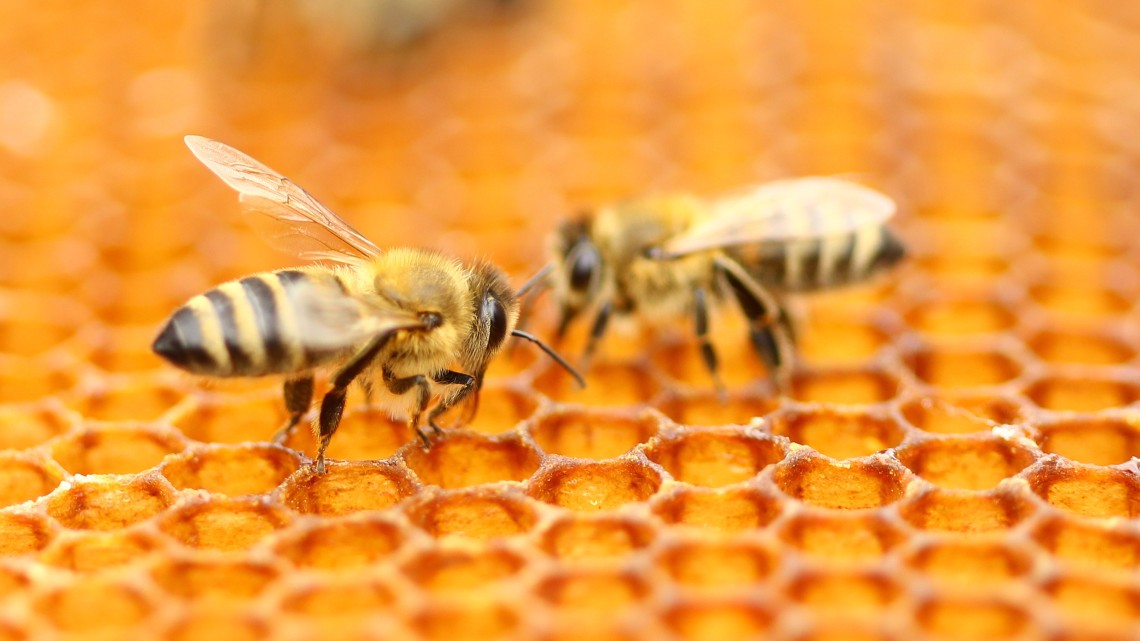
News directly from Cornell's colleges and centers
Cornell Keynotes podcast: Why are bee populations declining around the world?
By Torie Anderson
Concern about honey bees, and the possibility of human extinction, has swept the nation.
In a new episode of the Cornell Keynotes podcast from eCornell, Marina Caillaud, Ph.D., a senior lecturer in the College of Agriculture and Life Sciences, discusses the stressors on bee colonies — and how humans can reduce them — with Marc Faris, an instructional designer for eCornell's Bees and Us course.
The good news? Honey bees are all right.
The public [has] the perception that honey bee colonies are declining in the U.S. and that honey bees are in trouble, but the data says otherwise.
We know about managed colonies because honey bees are an agricultural commodity, just the way cows and chickens are. The United States Department of Agriculture is keeping track of their numbers every year.
We went from 5.9 million colonies in 1950 to 2.2 million around 2010. However, since that time, we actually have a stable number of managed colonies in the U.S., somewhere around 2.7 million bees. And if you run the numbers, knowing that a hive has about 40,000 bees in it, mostly workers, and you have 2.7 million bees, managed colonies or hives in the U.S., that means we have billions of honey bees . . . they're not going to go extinct. Across the whole planet, there are billions and billions of honey bees, and they are doing well because we are taking care of them.
—Marina Caillaud
However, bee populations across species are declining in the U.S. and beyond.
The evidence we have is showing that there is an overall decline of bee species. And in the U.S., we have evidence that bumblebees–which are looked at very carefully because they are big and easy to spot as opposed to many minute other bees that are hard to identify by the public–we have evidence that a quarter of them are threatened or near threatened.
—Marina Caillaud
The episode covers the causes of the decline, how individuals can help and more:
- Colony collapse disorder observed in 2006
- Global increases in managed honey bee colonies, particularly in Asia
- Significance of pollination in our ecosystem
- Stressors on honey bee colonies: pests and parasites, pesticides and poor nutrition
- Diversity of bee species around the world, including 4,000 different types in the U.S.
- Endangerment of bumblebee species
- Effects of habitat loss on non-honey bee species
- Proper removal of honey bees from houses
Listen to Episode 36: Why Are Bee Populations Declining Around the World? An Entomologist Explains How We Can Help.
Visit Simplecast to read more about this episode, and join Cornell’s most celebrated scholars and industry experts for candid conversations on trending topics and current events by subscribing to the Cornell Keynotes podcast.
Learn more in the Bees and Us online course, co-authored by Caillaud, and in eight other beekeeping programs from eCornell.
Follow eCornell on Facebook, Instagram, LinkedIn, TikTok and X to get weekly Cornell Keynotes podcast updates.
Media Contact
Get Cornell news delivered right to your inbox.
Subscribe
